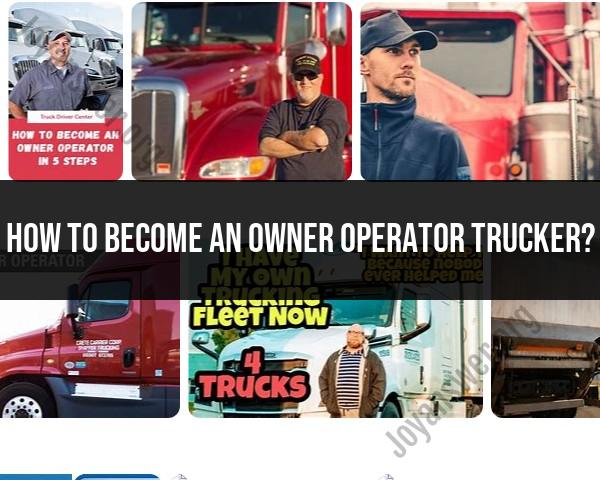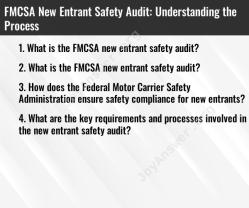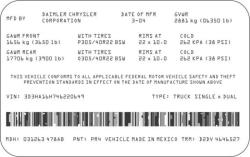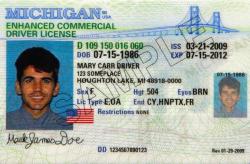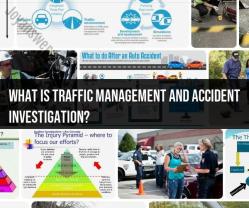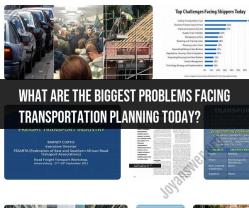How to become an owner operator trucker?
Becoming an owner-operator trucker involves several steps, including gaining experience as a commercial truck driver, obtaining the necessary licenses and certifications, and making financial and business decisions. Here is a step-by-step guide to becoming an owner-operator trucker:
Get a Commercial Driver's License (CDL):
- Obtain a CDL by completing a CDL training program or attending a truck driving school. This involves both classroom instruction and hands-on training. After completing the training, pass the written and skills tests to obtain your CDL.
Gain Experience as a Company Driver:
- Before becoming an owner-operator, it's advisable to gain experience as a company driver. This helps you develop your driving skills, understand the industry, and build a track record.
Build a Clean Driving Record:
- Maintain a clean driving record. A good driving history can be crucial when seeking financing for a truck and negotiating with carriers or shippers.
Save Money:
- Building financial stability is essential. Save money for a down payment on a truck, maintenance costs, insurance, and other business-related expenses. Establishing a financial cushion will help you navigate the challenges of being an owner-operator.
Research and Choose a Truck:
- Research different types of trucks, considering factors like fuel efficiency, maintenance costs, and the type of hauling you plan to do. Decide whether you want to buy a new or used truck.
Secure Financing:
- Explore financing options to purchase your truck. Some owner-operators use personal savings, while others secure loans or financing through truck dealerships or financial institutions.
Get Your Truck Insured:
- Obtain commercial truck insurance for your vehicle. Insurance is a legal requirement and a crucial aspect of protecting your investment and managing potential risks.
Register Your Business:
- Register your business as a sole proprietorship, partnership, LLC, or another suitable legal structure. This step is essential for tax purposes and legal compliance.
Obtain Operating Authority (MC Number):
- Depending on your location and the type of hauling you plan to do, you may need to obtain an Operating Authority (MC number) from the Federal Motor Carrier Safety Administration (FMCSA). This step is necessary if you plan to transport goods across state lines.
Fuel and Maintenance Accounts:
- Set up fuel and maintenance accounts with reputable vendors. This can include establishing relationships with truck stops and maintenance providers.
Find Freight and Establish Contracts:
- Decide whether you want to work with a carrier, use load boards, or establish direct contracts with shippers. Building relationships with freight providers is crucial for maintaining a steady flow of work.
Stay Compliant with Regulations:
- Understand and comply with industry regulations, including hours-of-service rules, safety regulations, and licensing requirements. Compliance is essential for avoiding fines and ensuring the safety of your operation.
Invest in Technology:
- Consider investing in technology such as GPS, electronic logging devices (ELDs), and other tools that can help with navigation, logistics, and compliance.
Becoming an owner-operator requires careful planning, financial responsibility, and a commitment to building and managing your own business. Seek advice from experienced owner-operators, join industry associations, and stay informed about changes in regulations and market conditions. Additionally, consider consulting with financial and business professionals to ensure that you are making sound financial decisions for your trucking business.
How does one transition into a career as an owner-operator trucker?
Transitioning into a career as an owner-operator trucker can be exciting and rewarding, but it requires careful planning and preparation. Here's a breakdown of key steps to consider:
1. Get your Commercial Driver's License (CDL):
- This is the essential starting point. Choose the appropriate CDL class (A for heavy-duty trucks, B for smaller trucks and buses). Research and choose a reputable CDL training school with a good track record.
- Consider specializing in a specific type of trucking like flatbed, tanker, or hazmat, which can offer higher earning potential but might require additional endorsements.
2. Gain experience as a company driver:
- Working for a trucking company provides valuable experience in driving, safety regulations, and industry practices. It also helps build your driving record and references, which are crucial for securing financing and insurance later.
- Focus on developing your skills, building relationships with potential clients or partners, and learning the business side of trucking, including budgeting, dispatching, and maintenance.
3. Secure funding and acquire your truck:
- This is a significant investment and requires careful financial planning. Research financing options, including loans from banks or credit unions, or consider leasing a truck initially.
- Choose a truck that fits your budget, desired type of cargo, and operational needs. Remember, maintenance and insurance costs for larger trucks can be higher.
4. Obtain necessary permits and insurance:
- This includes operating authority from the FMCSA, commercial insurance for your truck and cargo, and any additional permits required for specific types of transportation.
- Research different insurance providers and compare quotes to get the best coverage at a competitive price.
5. Establish your business:
- Decide on your business structure (sole proprietorship, LLC, etc.) and register your business with the appropriate authorities.
- Obtain a business bank account and credit card for business expenses.
- Develop marketing strategies to attract clients and build your customer base.
6. Network and build relationships:
- Connect with other owner-operators, industry professionals, and potential clients.
- Consider joining professional organizations or attending industry events to stay updated and expand your network.
Additional tips:
- Seek mentorship: Connect with experienced owner-operators who can provide guidance and support throughout your journey.
- Develop your business skills: Take courses or workshops on accounting, marketing, and business management specific to the trucking industry.
- Stay compliant with regulations: Always adhere to FMCSA regulations and ensure your truck and equipment are properly maintained.
- Prioritize safety: Make safety your top priority and invest in proper training and equipment to minimize risks.
Becoming an owner-operator trucker requires dedication, hard work, and strong business acumen. While challenging, it can also be incredibly rewarding and offer a sense of independence and control over your career. By carefully planning, gaining experience, and building a strong foundation, you can increase your chances of success in this exciting field.
Remember, this is a general overview, and specific requirements and steps may vary depending on your location and desired trucking specialization. I encourage you to do thorough research, seek professional guidance, and connect with experienced owner-operators for further insights and support on your journey.
I hope this information helps!
